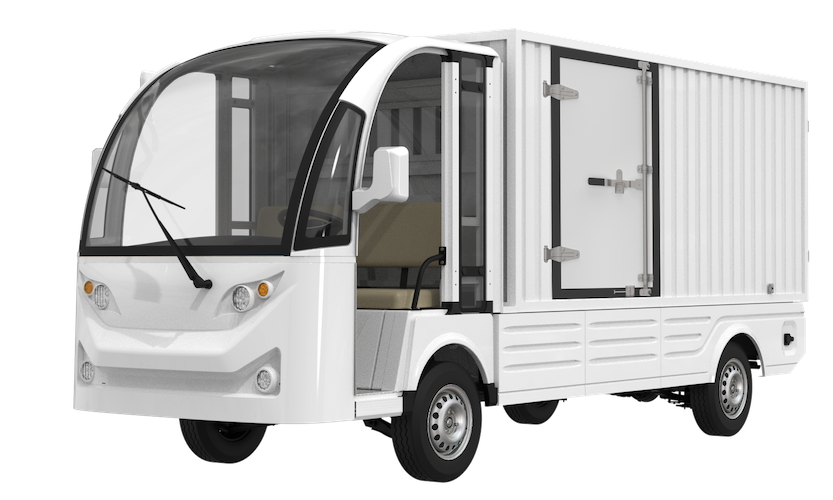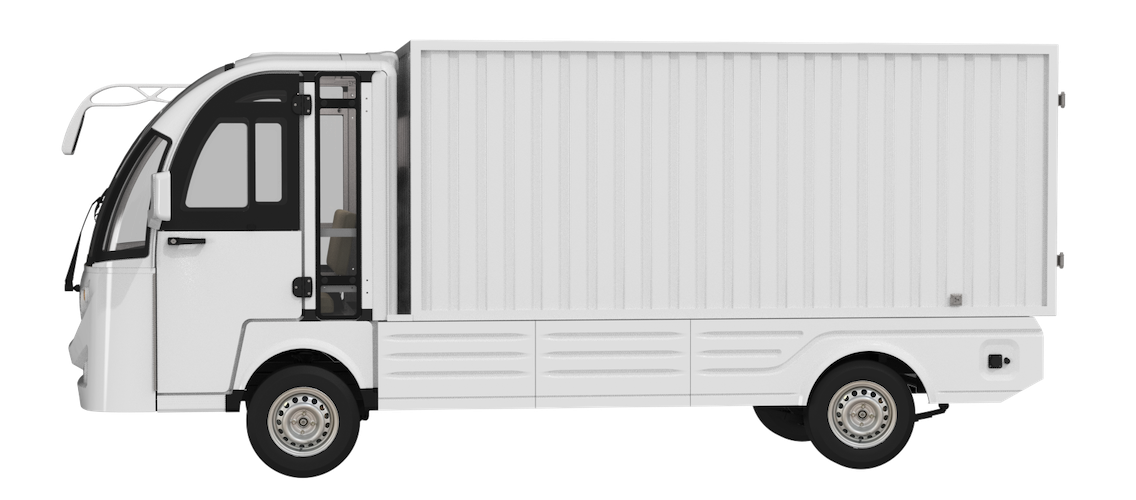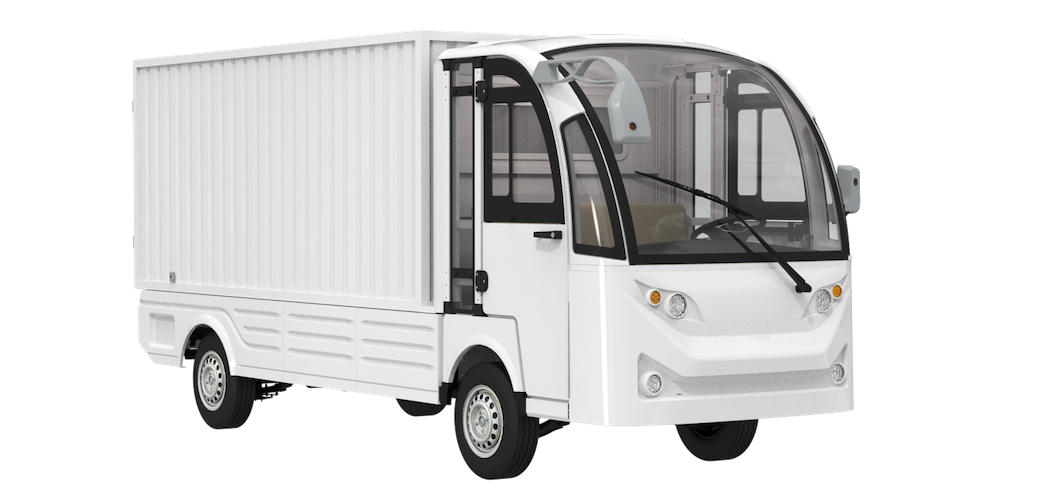Content Menu
● The Rise of Electric Cargo Vehicles in Thailand
>> Thailand's Commitment to Green Transportation
>> Market Growth and Demand Drivers
>> Expanding Infrastructure and Ecosystem
● Leading Electric Cargo Vehicle Manufacturers and Suppliers in Thailand
>> Energy Absolute Public Company Limited
>> RIDDARA
>> EVLOMO Thailand
>> Panus Assembly
>> FOMM (ASIA) Co., Ltd.
>> Thai EV
● Key International Players in Thailand's Electric Cargo Vehicle Market
>> BYD
>> FOTON
>> Isuzu
● Technological Innovations Among Electric Cargo Vehicle Manufacturers and Suppliers
>> Battery Technology
>> Smart Fleet Management
>> Charging Infrastructure
>> Vehicle Design and Customization
● Market Segmentation and Applications
● The Role of Logistics Companies in Driving Adoption
>> DHL Express Thailand
>> Nippon Express Logistics (Thailand)
>> Local Delivery Startups
● Challenges and Opportunities for Electric Cargo Vehicle Manufacturers and Suppliers
>> Challenges
>> Opportunities
● Future Outlook for Electric Cargo Vehicle Manufacturers and Suppliers
● Conclusion
● FAQ
>> 1. What are the main benefits of using electric cargo vehicles in Thailand?
>> 2. Who are the top electric cargo vehicle manufacturers and suppliers in Thailand?
>> 3. What challenges do electric cargo vehicle manufacturers and suppliers face in Thailand?
>> 4. How is the Thai government supporting the electric cargo vehicle industry?
>> 5. What is the future outlook for electric cargo vehicle manufacturers and suppliers in Thailand?
Thailand is rapidly emerging as a powerhouse in the electric vehicle (EV) sector, with a particular focus on electric cargo vehicles. As the demand for sustainable logistics and eco-friendly transportation solutions grows, Thailand's market for electric cargo vehicles is thriving. This article explores the landscape of electric cargo vehicle manufacturers and suppliers in Thailand, highlighting the leading companies, market trends, technological advancements, and the future outlook for this dynamic industry.

The Rise of Electric Cargo Vehicles in Thailand
Thailand's Commitment to Green Transportation
The Thai government's commitment to reducing carbon emissions and promoting sustainable mobility has fueled the growth of the electric cargo vehicle market. Ambitious policies, such as the National 30@30 Policy, aim to have 30% of all vehicles in Thailand be zero-emission by 2030. This initiative has attracted investments from global and local players, making Thailand a hub for electric cargo vehicle manufacturing and supply.
Market Growth and Demand Drivers
Several factors are driving the demand for electric cargo vehicles in Thailand:
- Government Incentives: Tax breaks, subsidies, and investment promotions for EV manufacturers and buyers.
- Environmental Regulations: Stricter emission standards for commercial vehicles.
- Rising Fuel Costs: Encouraging fleet operators to switch to electric alternatives.
- Urbanization: Increased need for efficient, low-emission last-mile delivery solutions.
- E-commerce Boom: The rapid growth of online shopping has intensified demand for reliable, sustainable delivery vehicles capable of navigating dense urban environments.
Expanding Infrastructure and Ecosystem
The growth of electric cargo vehicles in Thailand is also supported by a rapidly expanding EV ecosystem. This includes the development of charging infrastructure, battery manufacturing, and recycling facilities. Public-private partnerships are playing a crucial role in establishing fast-charging stations across major cities and logistics hubs, ensuring that electric cargo vehicles can operate efficiently without range anxiety.
Leading Electric Cargo Vehicle Manufacturers and Suppliers in Thailand
Energy Absolute Public Company Limited
Energy Absolute is a pioneer in Thailand's electric vehicle industry, producing a range of electric trucks and vans for cargo transport. The company is also investing heavily in battery production and charging infrastructure, supporting the growth of the entire EV ecosystem. Their vehicles are designed to meet the specific needs of the Thai market, combining durability with energy efficiency.
RIDDARA
RIDDARA has launched Thailand's first fully electric pickup truck, the RD6, designed for both urban and rural cargo transportation. The RD6 offers impressive payload capacity, advanced safety features, and a robust electric drivetrain. RIDDARA focuses on integrating smart technologies such as regenerative braking and intelligent battery management systems to maximize vehicle range and performance.
EVLOMO Thailand
EVLOMO specializes in electric commercial vehicles, including cargo vans and trucks. The company is known for integrating advanced battery technologies and providing comprehensive after-sales support, making it a preferred supplier for logistics companies. EVLOMO's vehicles are designed with modular battery packs, allowing for easy upgrades and maintenance, which is a significant advantage for fleet operators.
Panus Assembly
Panus Assembly is committed to developing cost-effective and reliable electric trucks tailored for the Thai market. Their vehicles are widely used in logistics, distribution, and municipal services. Panus Assembly emphasizes local manufacturing and assembly, which helps reduce costs and improve supply chain responsiveness.
FOMM (ASIA) Co., Ltd.
FOMM focuses on compact electric vehicles, including cargo vans ideal for short-range urban deliveries. Their innovative designs prioritize efficiency, safety, and sustainability. FOMM's vehicles are particularly popular among small business owners and delivery services operating within congested city centers.
Thai EV
Thai EV is Thailand's first commercial electric vehicle provider, offering a comprehensive range of products from e-motorcycles to e-trucks and e-buses. Their solutions include fleet management platforms and battery management systems, providing an integrated approach to electric cargo vehicle deployment. Thai EV is also active in training and certification programs to develop skilled technicians for the EV industry.

Key International Players in Thailand's Electric Cargo Vehicle Market
BYD
BYD, a global leader in electric vehicles, has established a strong presence in Thailand. Their electric cargo vans and trucks are popular among logistics companies for their reliability and advanced technology. BYD's vehicles often feature cutting-edge battery technology and telematics systems that enhance fleet efficiency.
FOTON
FOTON has delivered hundreds of electric trucks to Thailand, supporting the country's transition to sustainable freight and logistics solutions. Their vehicles are known for robust build quality and adaptability to various cargo needs, from light urban deliveries to heavier industrial transport.
Isuzu
Isuzu has begun mass production of the D-MAX EV pickup truck in Thailand, targeting both domestic and export markets. Isuzu's reputation for durability and performance makes its electric models highly attractive to commercial users seeking reliable electric cargo vehicles.
Technological Innovations Among Electric Cargo Vehicle Manufacturers and Suppliers
Battery Technology
Advancements in lithium-ion battery technology have significantly improved the range, safety, and charging speed of electric cargo vehicles. Manufacturers are investing in local battery production to reduce costs and enhance supply chain resilience. Emerging technologies such as solid-state batteries and fast-charging supercapacitors are also being explored to further enhance vehicle performance.
Smart Fleet Management
Many suppliers offer integrated fleet management systems, enabling real-time tracking, predictive maintenance, and route optimization for electric cargo vehicles. These systems help logistics companies reduce operational costs, improve delivery times, and extend vehicle lifespans. Artificial intelligence and machine learning are increasingly incorporated to provide actionable insights and automate fleet decisions.
Charging Infrastructure
The expansion of fast-charging networks across Thailand is crucial for the widespread adoption of electric cargo vehicles. Manufacturers and suppliers are collaborating with energy companies to deploy charging stations in key logistics hubs. Wireless charging and battery swapping technologies are also being piloted to improve convenience and reduce downtime.
Vehicle Design and Customization
Electric cargo vehicle manufacturers in Thailand are focusing on modular and customizable designs to meet diverse customer needs. This includes adjustable cargo space, enhanced safety features, and ergonomic driver cabins. Lightweight materials and aerodynamic designs are employed to maximize energy efficiency.
Market Segmentation and Applications
Electric cargo vehicles in Thailand serve a broad range of applications, segmented by vehicle size, payload capacity, and operational environment.
- Light Duty Trucks: Used primarily for urban deliveries and retail distribution, these vehicles are favored for their maneuverability and low operating costs.
- Medium Duty Trucks: Suitable for intercity logistics and e-commerce deliveries, offering a balance between payload capacity and range.
- Heavy Duty Trucks: Designed for long-haul freight and port operations, these vehicles require robust powertrains and extended range capabilities.
- Electric Pickup Vans: Popular in last-mile delivery and agricultural sectors, these vehicles combine versatility with electric efficiency.
The versatility of electric cargo vehicles makes them ideal for a variety of industries, including retail, food and beverage, pharmaceuticals, manufacturing, and municipal services.
The Role of Logistics Companies in Driving Adoption
DHL Express Thailand
DHL Express has expanded its electric fleet in Thailand, deploying electric vans and motorbikes for first-and-last-mile deliveries. The company aims to electrify 60% of its vehicles in Thailand by 2030. DHL's commitment highlights the growing trust in electric cargo vehicle manufacturers and suppliers to deliver reliable and sustainable logistics solutions.
Nippon Express Logistics (Thailand)
Nippon Express introduced its first EV truck in Thailand for air cargo delivery, with plans to expand its electric fleet further. Their efforts demonstrate the growing confidence in electric cargo vehicle technology and the benefits of reduced emissions and operating costs.
Local Delivery Startups
Several local startups have embraced electric cargo vehicles to differentiate their services by offering green delivery options. These companies often partner directly with manufacturers and suppliers to customize vehicles for specific urban logistics challenges.
Challenges and Opportunities for Electric Cargo Vehicle Manufacturers and Suppliers
Challenges
- High Upfront Costs: Electric cargo vehicles generally have higher purchase prices compared to diesel counterparts. However, total cost of ownership is often lower due to reduced fuel and maintenance expenses.
- Charging Infrastructure Limitations: While urban areas see rapid growth in charging stations, rural and remote regions still lack adequate facilities.
- Battery Supply Chain Dependencies: Thailand currently relies on imported battery cells, though efforts to establish local production are underway.
- Technological Adaptation: Integrating new technologies such as AI-based fleet management requires investment and training.
- Consumer Awareness: Educating fleet operators on the benefits and operational differences of electric cargo vehicles remains essential.
Opportunities
- Government Support: Ongoing incentives, subsidies, and infrastructure projects continue to lower barriers for manufacturers and buyers.
- Export Potential: Thailand's strategic location and manufacturing expertise position it as a regional export hub for electric cargo vehicles.
- Technological Innovation: Advances in battery, charging, and vehicle design technologies offer opportunities for differentiation and competitive advantage.
- Sustainability Goals: Increasing corporate commitments to sustainability drive demand for electric cargo vehicles.
- Partnerships and Collaborations: Collaborations between manufacturers, suppliers, energy providers, and logistics companies foster ecosystem growth.
Future Outlook for Electric Cargo Vehicle Manufacturers and Suppliers
The future for electric cargo vehicle manufacturers and suppliers in Thailand is bright. With the government's ambitious targets, increasing consumer awareness, and growing investments in technology and infrastructure, the market is set for robust growth. By 2030, Thailand is expected to be a regional leader in electric cargo vehicle production and supply, serving both domestic and international markets.
Manufacturers who focus on innovation, cost-efficiency, and customer-centric solutions will thrive. Additionally, the integration of smart technologies and expansion of charging infrastructure will be critical in accelerating adoption. The synergy between manufacturers, suppliers, logistics operators, and policymakers will shape a sustainable and prosperous future for electric cargo vehicles in Thailand.
Conclusion
Thailand's electric cargo vehicle market is evolving rapidly, driven by strong government support, technological innovation, and the commitment of leading manufacturers and suppliers. As the country moves toward a greener future, electric cargo vehicles are set to play a pivotal role in transforming logistics and transportation. Manufacturers and suppliers who invest in advanced technology, local production, and customer-centric solutions will be well-positioned to capitalize on the opportunities in this dynamic market. The continuous growth of charging infrastructure and fleet management technologies will further enhance the appeal and operational efficiency of electric cargo vehicles, making them indispensable in Thailand's sustainable transportation landscape.

FAQ
1. What are the main benefits of using electric cargo vehicles in Thailand?
Electric cargo vehicles offer lower operating costs, reduced carbon emissions, and compliance with environmental regulations. They are ideal for urban logistics and contribute to a cleaner, quieter city environment. Additionally, they reduce dependence on fossil fuels and help companies meet sustainability goals.
2. Who are the top electric cargo vehicle manufacturers and suppliers in Thailand?
Leading companies include Energy Absolute, RIDDARA, EVLOMO, Panus Assembly, FOMM, and Thai EV. International players like BYD, FOTON, and Isuzu also have a strong presence, offering a wide range of electric cargo vehicles tailored to different market needs.
3. What challenges do electric cargo vehicle manufacturers and suppliers face in Thailand?
Key challenges include high initial costs, limited charging infrastructure, and reliance on imported battery technology. However, government incentives and investments are addressing these issues, and technological advancements continue to improve vehicle affordability and performance.
4. How is the Thai government supporting the electric cargo vehicle industry?
The government offers tax incentives, subsidies, and infrastructure investments. Policies like the National 30@30 Policy aim to make 30% of all vehicles zero-emission by 2030. Additionally, public-private partnerships are fostering the development of charging networks and local manufacturing capabilities.
5. What is the future outlook for electric cargo vehicle manufacturers and suppliers in Thailand?
The outlook is highly positive, with strong growth expected due to supportive policies, technological advancements, and increasing demand from logistics and e-commerce sectors. Thailand is poised to become a regional hub for electric cargo vehicle production and innovation.










































